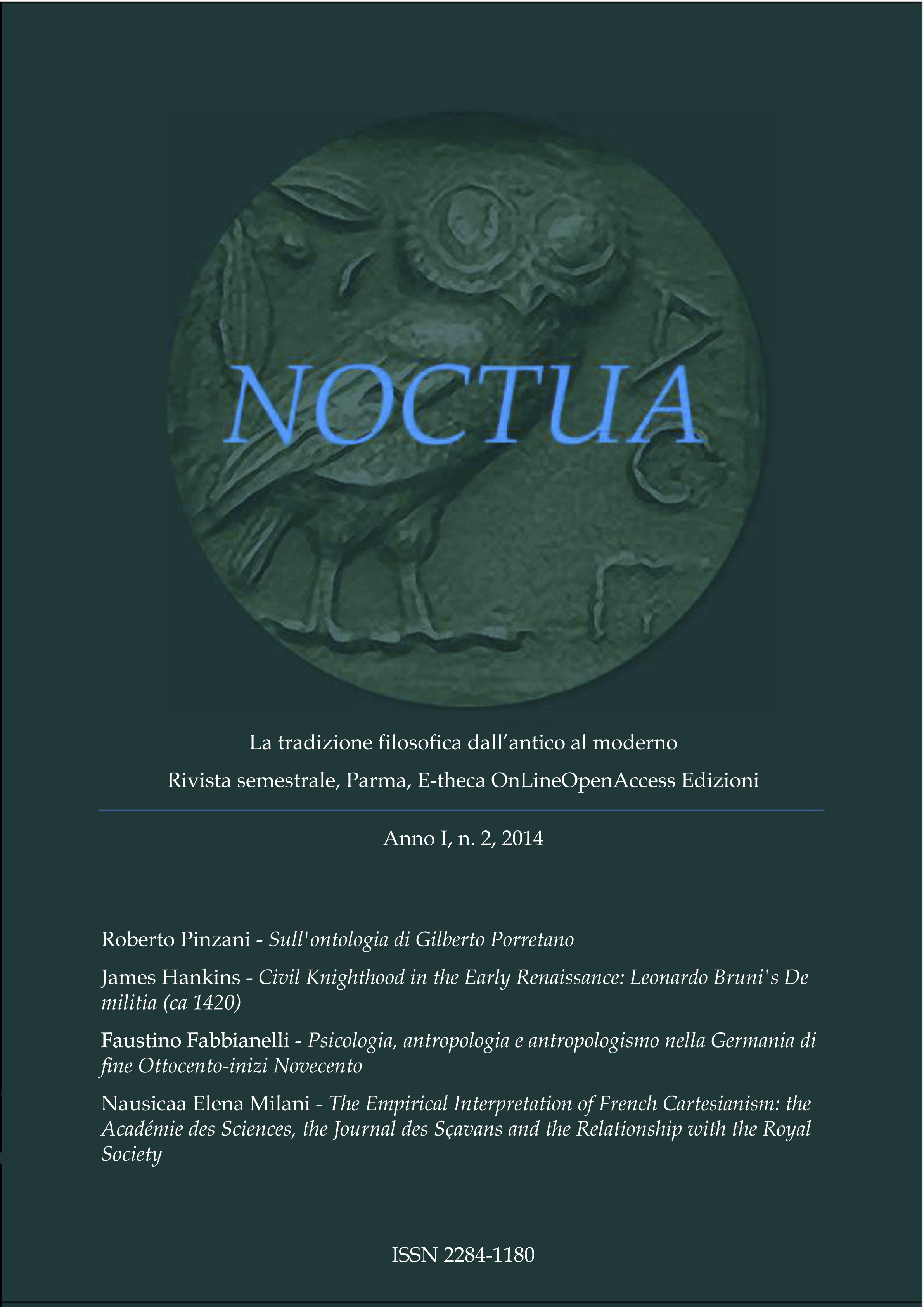Psicologia, antropologia e antropologismo nella Germania di fine Ottocento-inizi Novecento
DOI:
https://doi.org/10.14640/NoctuaI8Keywords:
psychology, anthropology, anthropologism, Immanuel Kant, Wilhelm Dilthey, Wilhelm WundtAbstract
The aim of my paper is to show how the two concepts of psychology and anthropology are linked in the philosophical reflection of some german authors between the end of 19th and the beginning of the 20th century: I discuss in particular the theories of W. Dilthey, W. Wundt, T. Lipps, W. Windelband and H. Cohen. I find a line of demarcation that divides their theoretical positions and concerns the role that psychology should play in relationship to the investigation on the human nature. In front of statements for which psychology (descriptive, genetic or phenomenological) represents the basis for an anthropological proposal there are philosophical assumptions according to which such an idea has to be comprehended as a form of anthropologism or psychologism. Instead of studying facts and connections of facts a well founded anthropological research should be transcendental and start from the Kantian question about the conditions of the possibility of the human nature.
Downloads
Published
Issue
Section
License
Noctua pubblica contributi Diamond Open Access secondo i termini della licenza CC BY / Noctua publishes Diamond Open Access contributions under the terms of the CC BY license.






